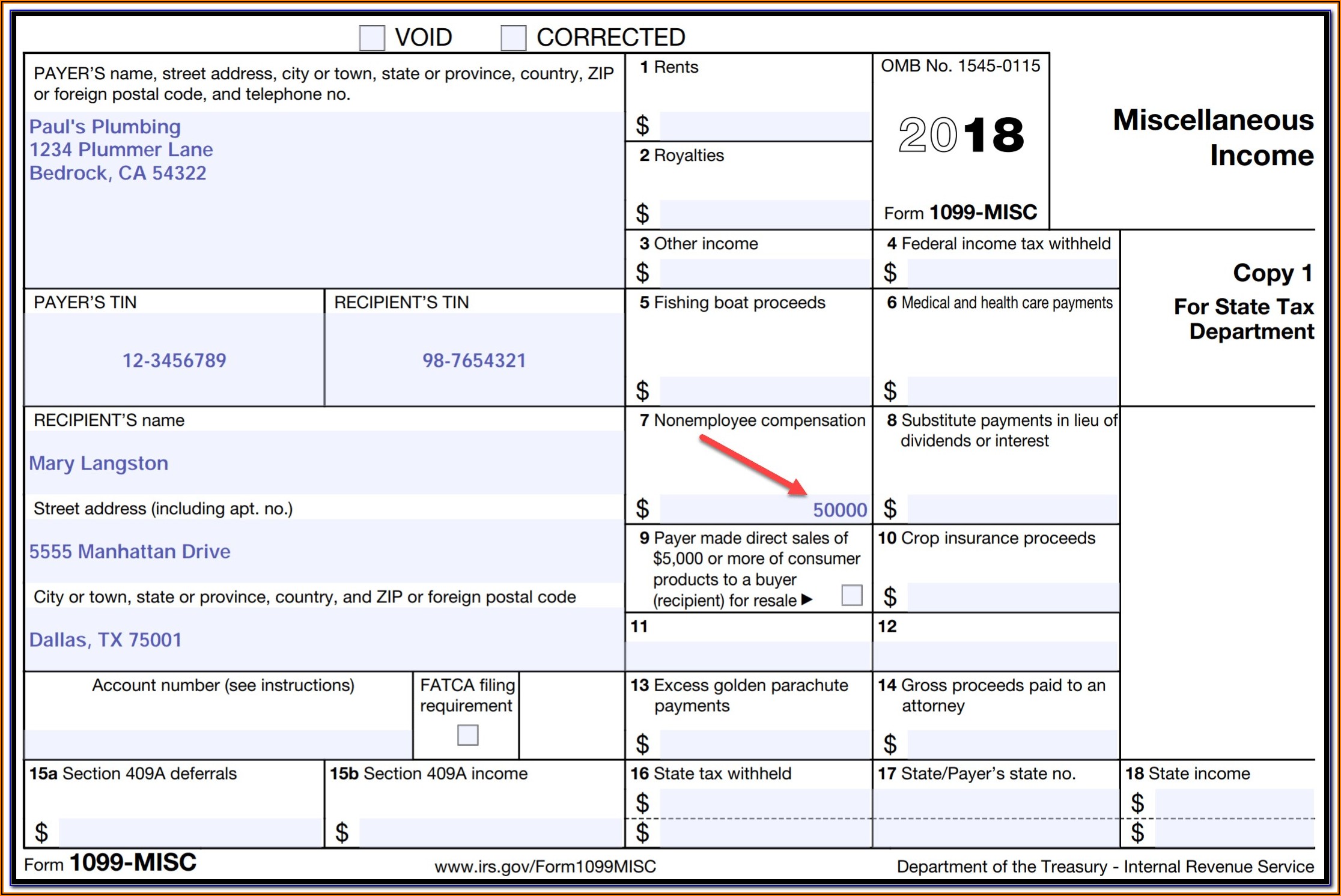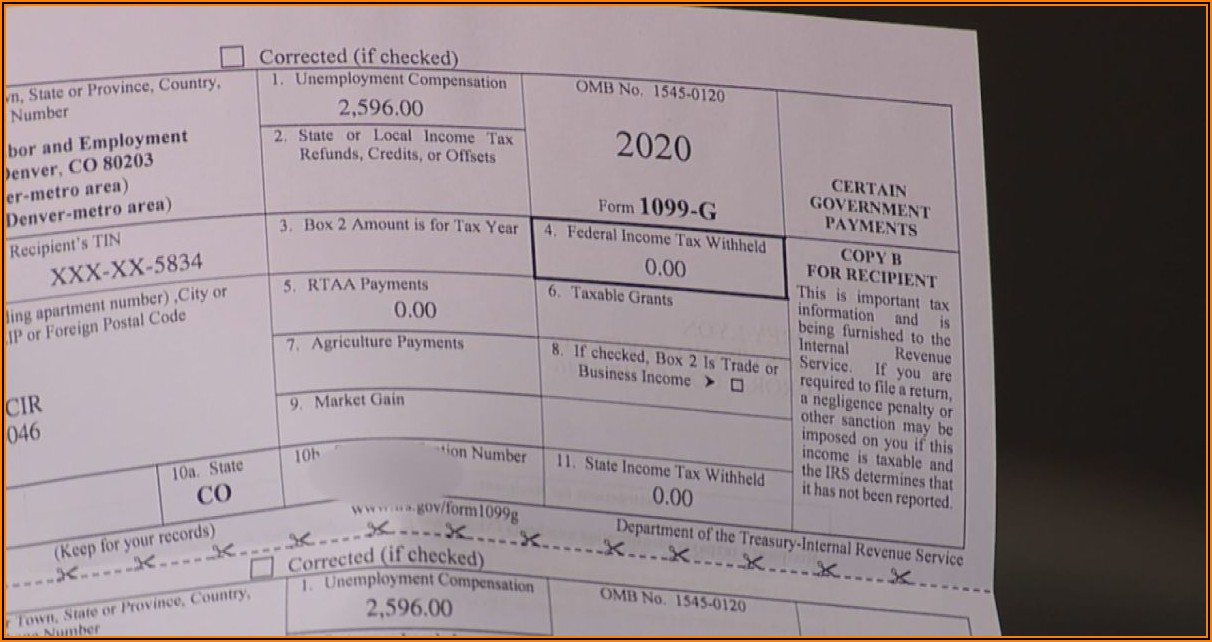Unpacking The State Of Colorado 1099-G: A Comprehensive Guide For Taxpayers
Let’s talk about something that’s been buzzing in the financial world lately: the State of Colorado 1099-G form. If you’re scratching your head wondering what this is, don’t worry—you’re not alone. The 1099-G is a tax form issued by state governments to individuals who received certain types of income during the tax year. Whether you’re a freelancer, a gig worker, or just someone who received unemployment benefits, understanding this form is crucial if you want to avoid surprises when tax season rolls around.
Now, before we dive headfirst into the details, let’s break it down in simple terms. The State of Colorado 1099-G is essentially a document that reports payments made to you by the state. These payments could be unemployment compensation, refunds from state income taxes, or even overpayments that were corrected. It’s like the state saying, “Hey, here’s what we gave you last year, and you need to report it when you file your taxes.”
Here’s the kicker: if you ignore this form or misinterpret it, you might end up owing more taxes—or worse, facing penalties. So, buckle up, because we’re about to take a deep dive into everything you need to know about the State of Colorado 1099-G. From how it works to where you can find it, we’ve got you covered. Let’s go!
Read also:Julianna Farrait Rodriacuteguez The Rising Star Of Latin Music
What Exactly is the State of Colorado 1099-G Form?
Alright, let’s start with the basics. The State of Colorado 1099-G form is a tax document that reports payments made to you by the state government. These payments can include:
- Unemployment benefits
- State tax refunds
- Overpayments that were corrected
- Other government payments, like grants or subsidies
Think of it as a financial snapshot of your interactions with the state during the tax year. If you received any of these payments, the state is required to send you a 1099-G form by the end of January. And guess what? You need to report this information when you file your federal and state tax returns.
Now, here’s a fun fact: the 1099-G form isn’t just a Colorado thing. It’s used nationwide, but each state has its own version. So, if you’ve lived in multiple states, you might receive multiple 1099-G forms. It’s like a treasure hunt, but instead of gold, you’re hunting for tax documents!
Why Should You Care About the 1099-G?
Let’s get real for a second. Why should you even bother with the State of Colorado 1099-G? Well, here’s the deal: the IRS and the Colorado Department of Revenue use this form to verify your income. If you don’t report the information correctly, you could end up with a nasty surprise in the form of penalties or interest charges.
But wait, there’s more! If you received unemployment benefits, those payments are taxable. Yes, you read that right. The government considers unemployment benefits as income, and you need to report them on your tax return. The 1099-G form is your ticket to ensuring everything is accounted for.
Here’s a quick example: let’s say you received $10,000 in unemployment benefits last year. If you don’t report that amount, the IRS might come knocking on your door asking for an explanation. And trust me, you don’t want that kind of attention.
Read also:Why Did Shemar Moore Leave Criminal Minds The Inside Story You Need To Know
How Does the 1099-G Form Work?
Alright, let’s break it down step by step. When you receive the State of Colorado 1099-G form, it will include several boxes with different amounts. Each box corresponds to a specific type of payment. Here’s what you’ll typically see:
- Box 1: Total payments made to you by the state
- Box 3: Unemployment compensation
- Box 5: State tax refunds
- Box 7: Other income, like grants or subsidies
Now, here’s the important part: you need to transfer these amounts to your federal tax return (Form 1040) and your Colorado state tax return. It’s like filling in the blanks on a puzzle. Each box corresponds to a specific line on your tax forms, so make sure you double-check everything.
And remember, if you received multiple 1099-G forms from different states, you’ll need to add up all the amounts and report the total. It’s like a math problem, but with a twist.
Where Can You Find Your 1099-G Form?
So, where exactly do you get your State of Colorado 1099-G form? Well, it depends on how you prefer to receive your mail. If you’re old-school, the state will send you a physical copy by the end of January. But if you’re a digital native, you can access your 1099-G form online through the Colorado Department of Revenue’s website.
Here’s how you can find it:
- Go to the Colorado Department of Revenue’s website
- Log in to your account (or create one if you haven’t already)
- Click on the “View My 1099-G” option
- Download or print your form
Pro tip: if you haven’t received your 1099-G form by the end of January, don’t panic. Sometimes there are delays, especially if you’ve recently moved or changed your mailing address. Just give the state a call or check your online account for updates.
Who Needs to File the 1099-G?
Not everyone needs to file a State of Colorado 1099-G form. Here’s a quick breakdown of who should pay attention:
- Freelancers: If you received payments from the state for freelance work, you’ll need to report it.
- Gig Workers: If you’re part of the gig economy and received unemployment benefits, this form is for you.
- Unemployment Recipients: If you collected unemployment compensation, you’ll need to report it on your tax return.
- Refund Recipients: If you got a state tax refund last year, you’ll need to include it on your federal return.
Now, here’s the tricky part: even if you didn’t receive a physical or digital copy of the 1099-G form, you’re still required to report the information. So, if you’re unsure whether you qualify, it’s always a good idea to double-check with the state or a tax professional.
Common Mistakes to Avoid
Let’s talk about some common pitfalls when it comes to the State of Colorado 1099-G form. Here are a few things to watch out for:
- Forgetting to Report: Don’t leave out any payments reported on your 1099-G. The IRS and the state are watching, and they’ll notice if something’s missing.
- Misplacing the Form: Keep your 1099-G in a safe place. You’ll need it when you file your taxes, and losing it can cause unnecessary stress.
- Ignoring Corrections: If you receive a corrected 1099-G form, make sure to update your records. The state might have made a mistake, and it’s your responsibility to fix it.
And here’s a bonus tip: if you’re unsure about anything, don’t hesitate to reach out to a tax professional. They’re like your personal financial sherlocks, and they can help you navigate the complexities of tax season.
How to File Your 1099-G
Filing your State of Colorado 1099-G form is easier than you think. Here’s a step-by-step guide:
- Gather all your 1099-G forms from different states (if applicable)
- Add up the amounts in each box
- Transfer the totals to your federal tax return (Form 1040)
- Report the same information on your Colorado state tax return
Pro tip: if you’re using tax software like TurboTax or H&R Block, the program will automatically guide you through the process. It’s like having a personal assistant who does all the heavy lifting for you.
What Happens if You Don’t File?
Now, let’s talk about the consequences of not filing your 1099-G. If you ignore this form, you could face penalties, interest charges, or even an audit. The IRS and the state don’t play games when it comes to taxes, so it’s in your best interest to stay compliant.
But here’s the good news: if you make a mistake or forget to file, you can always amend your tax return. It’s like a do-over, but with a bit more paperwork involved.
Tips for Navigating Tax Season
Let’s wrap things up with a few tips to help you navigate tax season like a pro:
- Stay Organized: Keep all your tax documents in one place. This includes your 1099-G forms, W-2s, and any other relevant paperwork.
- Use Tax Software: If you’re not comfortable filing your taxes manually, consider using tax software. It’s like having a virtual assistant who does all the math for you.
- Consult a Professional: If you’re unsure about anything, don’t hesitate to reach out to a tax professional. They can help you avoid costly mistakes and ensure everything is filed correctly.
And remember, tax season doesn’t have to be stressful. With the right tools and information, you can tackle it with confidence.
Conclusion
In conclusion, the State of Colorado 1099-G form is an essential part of your tax filing process. Whether you’re a freelancer, a gig worker, or just someone who received unemployment benefits, understanding this form is crucial for staying compliant with tax laws.
Here’s a quick recap of what we covered:
- The 1099-G form reports payments made to you by the state
- It’s important to report this information on your federal and state tax returns
- Common mistakes include forgetting to report, misplacing the form, and ignoring corrections
- Filing your 1099-G is easier with tax software or the help of a professional
So, what’s next? If you haven’t already, make sure to gather all your 1099-G forms and start preparing your tax return. And don’t forget to share this article with your friends and family who might find it helpful. Together, we can make tax season a little less daunting.
Call to Action
Have questions about the State of Colorado 1099-G form? Leave a comment below, and we’ll do our best to help you out. And if you found this article useful, why not share it on social media? Knowledge is power, and the more people know, the better prepared we all are for tax season. Cheers to staying informed and tax-savvy!
Table of Contents
Article Recommendations


